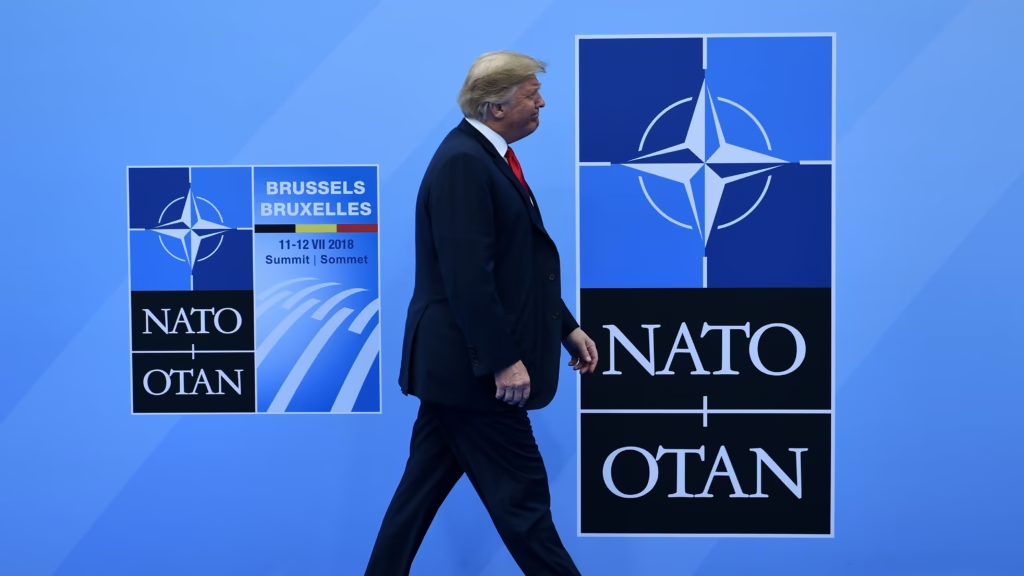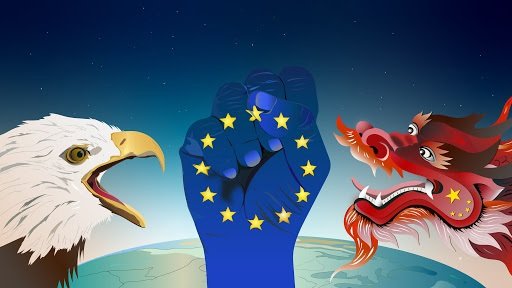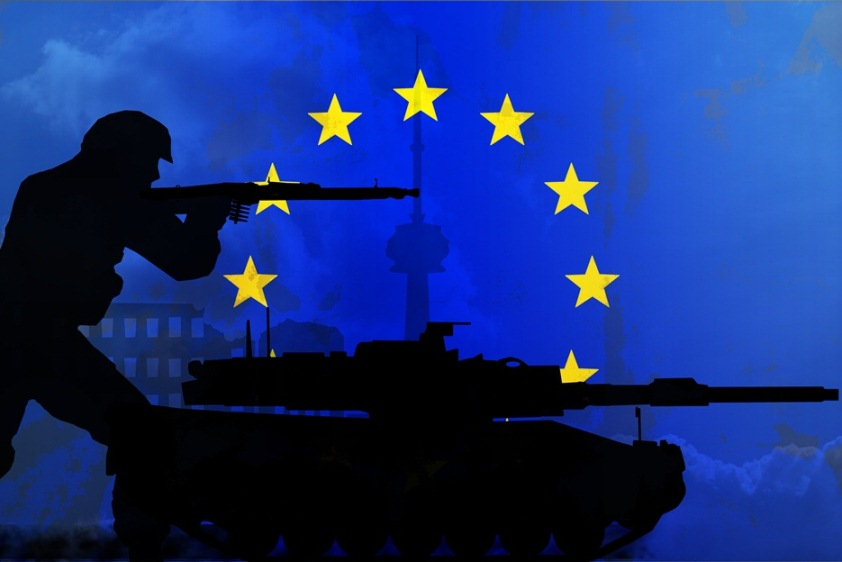Few days back, former British Home Secretary Charles Clarke remarked that Trump’s mix of “bullying and flattering” is unlikely to produce a lasting peace in Ukraine.
This statement, along with Trump’s oval office meeting with Zelenskyy on 28 February, 2025 – a hot, fierce and confrontational meeting, which ended without any resolution, also showed a deeper matter at hand that Europe’s security is no longer guaranteed, and its geopolitical footing is increasingly unstable.
Since returning to the White House for his second term, Trump has reiterated promises to end the war within 24 hours and even before, for example, during the presidential debate on the 24 June, 2024 between him and Biden. Though negotiations are reportedly underway following his recent phone call with President Putin, the Kremlin maintains that talks will take time.
Meanwhile, Trump has shown hesitation to join Europe in ramping up sanctions, further straining transatlantic cooperation.
In this post-Ukraine world, Europe finds itself in a geopolitical quandary, trying to balance its security dependency on the United States while growing economic ties with China. This dilemma is further compounded by the lack of a unified EU foreign policy, often fractured by divergent national interests.
NATO Commitments and Transatlantic Drifts
Trump has increasingly questioned Article 5 commitments on collective security and his recent threats to abandon the article 5 obligations for under-spending NATO allies has rattled Europe. Though the 2% defense spending target was set a decade ago, Trump has pushed for 5%, a figure that not even the United States currently meets.
“It’s ridiculous because its affects them a lot more”, he stated, referencing to America’s stance and geographic distance from conflict zones.
This coercive posture has led the European nations to increase their military budgets, but numbers alone are not sufficient. As of 2024, 22 out of 31 NATO members have met the 2% mark which though is an improvement, still shows that Europe lacks the operational integration, heavy lift capabilities, aerial refueling, and ISR infrastructure.

Increased defense spending also uplifts domestic backlash especially in wake of the social and environmental dynamics of Europe. However, this transactional tone of Donald Trump has also led towards a new and open space as some European leaders are now considering strategic engagement with China not as an alignment but as a leverage to renegotiate more equitable terms with Washington.
Nonetheless, this too must be approached with caution as it can potentially further the transatlantic divide.
Economic Tug of War: Between Beijing and Washington
Europe’s increasing economic trade with China is viewed by Washington as dangerous and as a zero-sum game. For China, this is an opportunity. The EU remains China’s top trading partner accounting more than 29.6% of global trade and 34.4% of GDP collectively.
In 2023, EU-China trade in goods exceeded €840 billion and in 2024, the EU exported goods worth €213.3 billion to China and imported goods worth €517.8 billion, according to the official EU-China trade reports. Particularly for Europe’s green and digital transitions, China is a key supplier of critical materials.
At the same time, China’s digital silk road and investments in 5G infrastructure have shown an increasing potential as some states welcome increasing tech. But others fear surveillance, backdoors, and compromised sovereignty.

Diplomatically, China has engaged the European community calling for peace talks and a multipolar world but its engagement and alliance with Russia has also damaged its credibility with many of the European governments.
However, Europe is no bystander in global trade. Its foreign direct investment in the United States is substantial and mutual economic dependence gives Europe a strategic leverage as well. But as the US pivots towards the Indo-Pacific, Europe faces the dual burden of higher defence costs and diminishing American guarantees.
The Struggle for Strategic Autonomy
The EU’S much discussed “Strategic Autonomy” remains more of a slogan than a strategy. For some member states, it means reduced alliance on the US while for others it means deeper cooperation.
This lack of consensus and its fragmented response to both America and China, reflects the internal divisions within and weakens the EU’s geopolitical hand, making it vulnerable to being pulled by stronger external actors.
True autonomy requires more than defense spending and demands institutional agility, unified decision-making, and a clear articulation of Europe’s role in global order.
Without this, Europe risks drifting between American coercion and Chinese calculations, never fully charting its own course.
Between Two Giants, Europe Must Choose Itself
The geopolitical quandary in Europe is no longer just hypothetical now, it is a lived reality. As the United States adopts a more transactional approach under Trump, and China seeks deeper economic and diplomatic inroads, the EU must create a coherent and strategic response which must include investing in credible defense, securing digital and resource independence and speaking with one voice on the global stage.
Alongside this, it must adopt various policy measures like securing raw material independence by partnering with Africa, Central Asia, and South America for alternative sourcing. Similarly, it should use export credit agencies to support EU firms shifting supply chains from China and establish a Transatlantic Investment Security Council to align FDI screening with the United States on European Terms.
At the same time, it needs to have an EU Rapid Response Force for hybrid and cyber warfare and the EU states need to have a single unified voice on China, Russia, and tech diplomacy.
The twenty-first century chessboard is already being redrawn. In a world with sharpened rivalries and decaying alliances, Europe’s greatest threat is not choosing between the US and China, but failing to choose itself.
*The views expressed in this article are the author’s own and do not necessarily reflect the editorial policy of TDI.

Maheen Wiqar
Maheen Wiqar is a student of International Relations with a strong interest in geopolitics, conflict analysis, diplomacy, and global security. Her work reflects a commitment to peace-oriented policy discourse, especially in South Asia, Middle East, and Central Asia.



